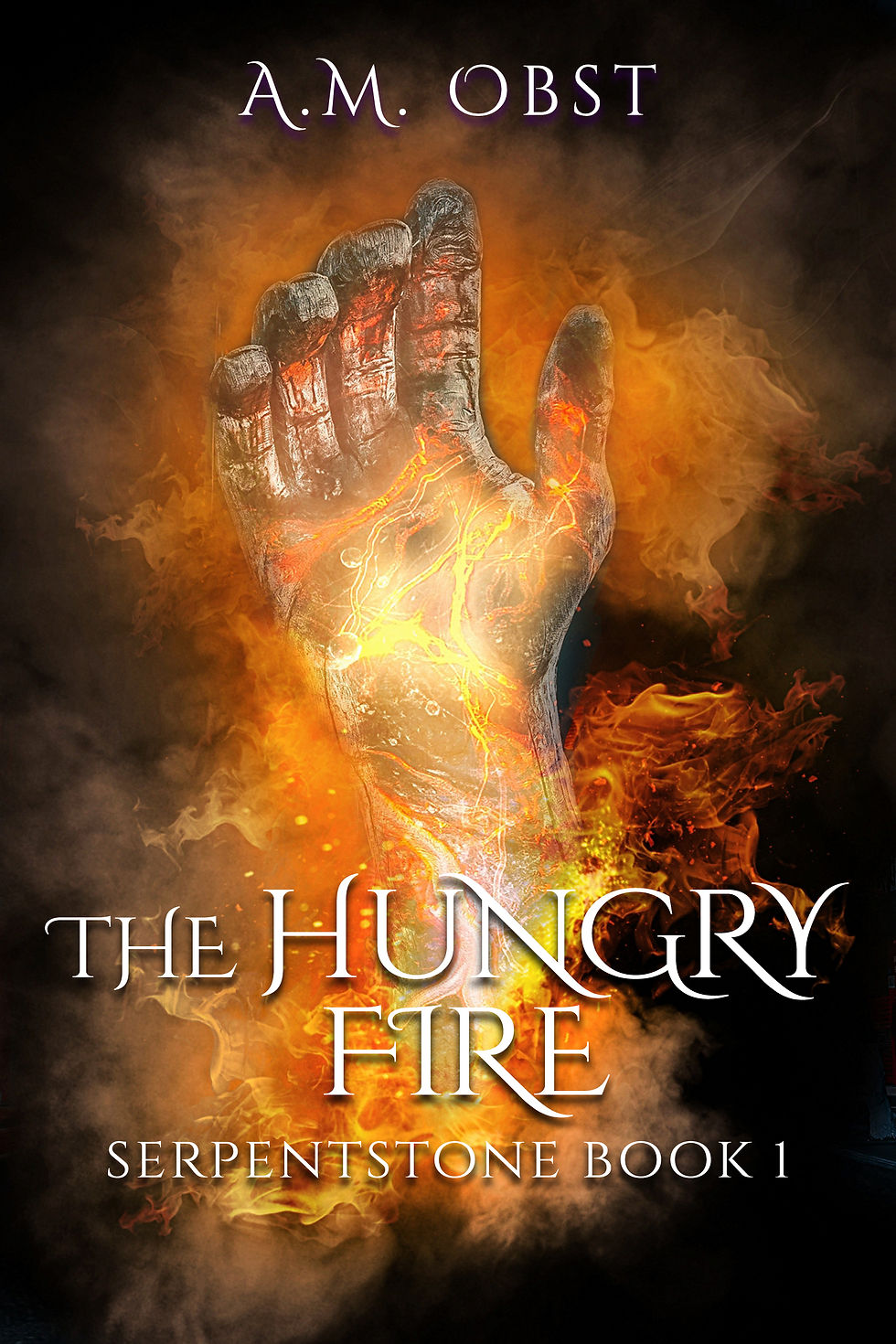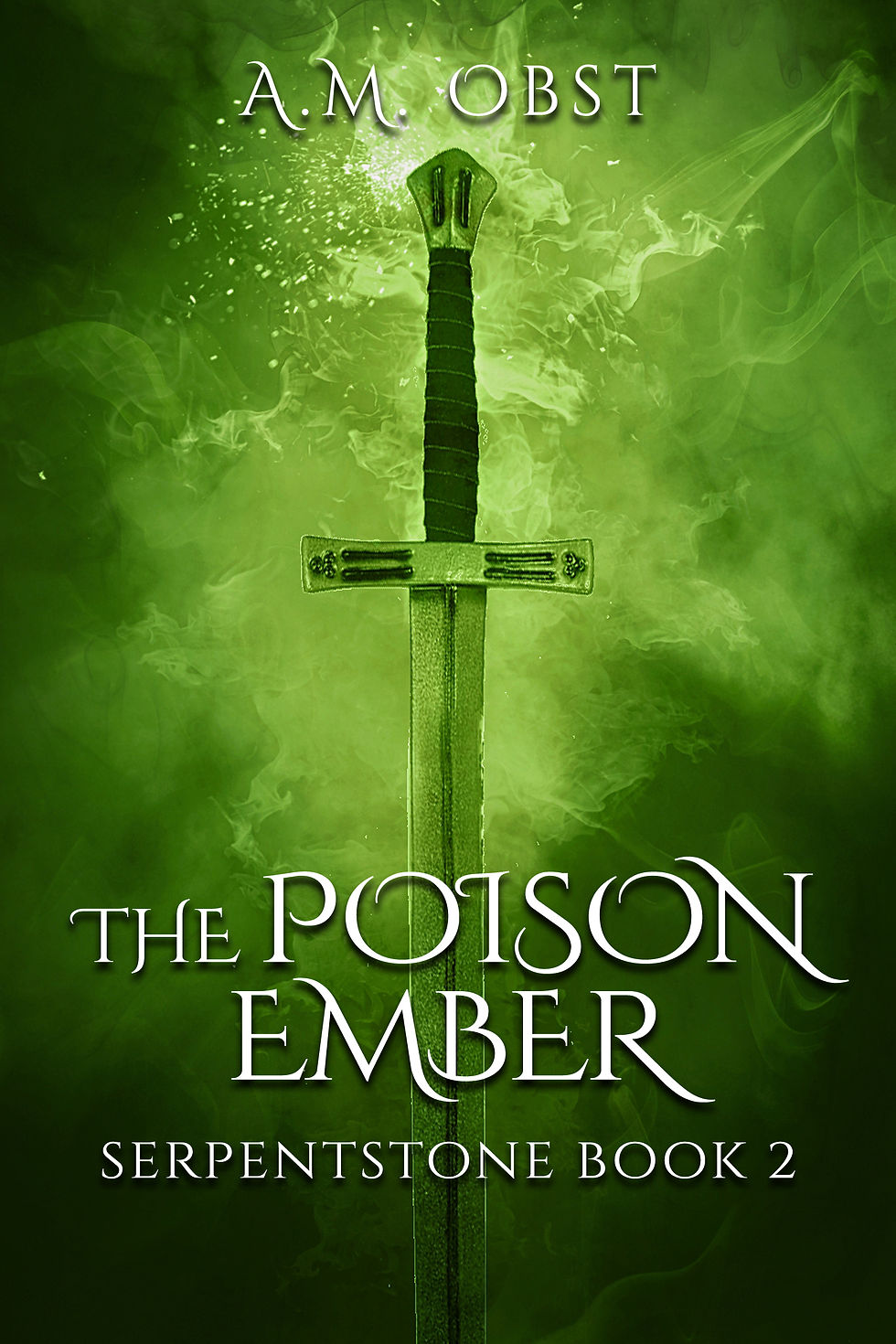Why I like fantasy – A.M. Obst
- lotenwriting
- Feb 11
- 4 min read

My love of fantasy goes back as far as I can remember. My mother was a junior primary teacher, and I vividly recall her reading The Hobbit by J.R.R. Tolkien and the Chronicles of Narnia by C.S. Lewis to my sisters and me. As soon as I was old enough to read for myself I devoured those books again, quickly moving on to other classics such as Lloyd Alexander’s The Chronicles of Prydain and, perhaps inevitably, The Lord of the Rings.
I had (and still have) a very active imagination, and I loved to immerse myself in mysterious worlds where magic was possible, enabling an often overlooked character to surprise everyone by saving the people and places they loved. I was never one of the popular kids at school, and I enjoyed the idea that someone like me could wield mysterious powers – even if I never wanted to be faced with the same challenges as the characters in those stories. Many people grow out of such a phase, but I didn’t, and as I matured, so did my tastes.
At first, fantasy books seemed to be mostly set in places that looked a lot like medieval Britain, and told stories about heroes with magic swords and beautiful princesses. But over the years, the genre has broadened and diversified, and is now very rich, taking inspiration from many different real-world cultures and folklores – the books of authors such as Tasha Suri, S.A. Chakraborty and R.F. Kuang have been standouts for me. Many fantasy books I’ve enjoyed feature strong female leads, who refuse to be relegated to waiting in a tower for the dashing hero to return. Their strength manifests itself in different ways – they’re not all trained assassins or swordswomen! For example, Samantha Shannon’s Bone Season series, Jo Spurrier’s Blackbone Witches duology, and The Falconer trilogy by Elizabeth May.
These days, fantasy doesn’t necessarily have to involve magic, either – there is very little in the hugely popular Game of Thrones series by George R.R. Martin, or in Joe Abercrombie’s bestselling Age of Madness trilogy. Inventing their own setting frees authors from having to force their story to fit into a real world setting, giving them latitude to explore what our world could look like if some of the aspects we take for granted were different.
Contrary to what some people believe, fantasy isn’t an “easy way out” for an author, where they can make up anything and put it into the story. Readers are very discerning, and will be quickly put off if a fantasy world contains inconsistencies, or of the plot can be solved merely by a wave of magic wand. Many fantasy readers enjoy immersive worlds they can imagine themselves inhabiting (to an extent), but like most genres, those worlds need to be grounded in realism.
Fantasy isn’t always set in a made up place - Juliet Marillier’s moving Sevenwaters series is set in historical Ireland. They can also take place in our world and time period, for example the popular Rivers of London books by Ben Aaronovich. The difference is, the books have a twist, an element of the fantastical that enables amazing stories to unfold.
Today, fantasy is a vast category with many subgenres – urban, contemporary, romantic (a.k.a. ‘romantasy’, one of the biggest selling subgenres today), sword and sorcery, portal, historical, grimdark, epic, paranormal, gothic, magical realism, alternative history, fairytale retellings, steampunk… and sometimes those subgenres come together to create new stories that find a dedicated fanbase. Dare I say it, there is something for almost everyone if you look hard enough!
My favourite, ‘go-to’ fantasy authors are Kate Elliott (sadly, hugely underrated), N.K. Jemisin, Claire North and V.E. Schwab. I have read everything they’ve published and automatically buy new books from them because I know I’m likely to enjoy them. More recent discoveries (to me, some have been around a while) include Sabaa Tahir, Melissa Caruso, Adrian Tchaikovsky, T. Kingfisher and Brad Magnarella.
My main goal as a writer is to create exciting tales with characters that inspire empathy and draw people in to enjoy the ride. If they also happen to say something meaningful about the world or what it is to be human, then that’s a bonus. I try to avoid many of the recognisable fantasy tropes – my stories don’t feature elves, dwarves, orcs, vampires or werewolves. Other authors have written about those much better than I can. (I admit, maybe I will write about dragons, one day.)
To date, I’ve published the Serpentstone duology (the books are called The Hungry Fire and The Poison Ember) that tells the story of three ordinary people who find themselves having to save the people and town they love, without a clue how to do it. I’m currently working on a contemporary or urban fantasy (depending on who you talk to) set in my hometown of Adelaide, Australia, featuring a monster that lurks inside the internet.
You can buy my books here:


Comments